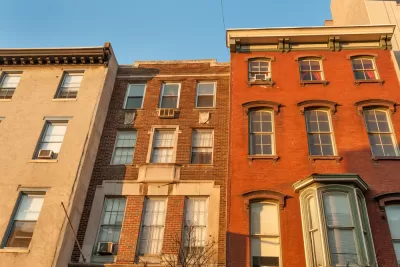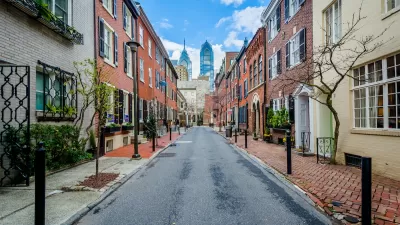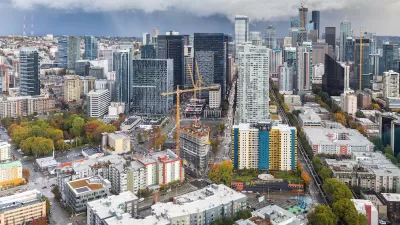Among a package of bills that died in the pocket of Philadelphia Mayor Jim Kenney at the beginning of the New Yer was a bill intended to ensure that developers contribute to communities.

"A bill requiring developers to provide public services and amenities in neighborhoods where they build major projects was passed by [the Philadelphia] City Council on the last day of its four-year term," reported Jake Blumgart in December. By the end of the month, however, the fate of that bill had taken a turn, when Mayor Jim Kenny killed the bill, along with five others, with the power of the pocket veto.
Blumgart also reported the details of this twist in the development plot: "With his first term coming to an end, the mayor Tuesday released a letter to the city’s legislators announcing that he will kill six pieces of legislation via a handy maneuver known as the pocket veto. The opportunity to pull such a move comes only once every four years at the end of a Council term when the sitting mayor can simply decide not to sign bills and, thus, quietly sentence them to death."
Along with the community development agreement requirement, the mayor also killed several other planning- and development-related bills:
An expansion of the homestead exemption that accompanied the recent alteration of the 10-year property tax abatement got canned and two bills that rewrote the city’s zoning rules for Society Hill. Also dead: an unpopular ban on food trucks operating on Market Street between 33rd and 34th Streets in University City.
According to the previous coverage of the development agreement bill, the development agreement requirement was expected to be hard to enforce. "Given the holes in the legislative language and the lack of mandated penalties, the city’s development industry isn’t too worried," wrote Blumgart earlier in the month.
FULL STORY: Mayor expected to sign bill requiring developers give back to Philly communities

Alabama: Trump Terminates Settlements for Black Communities Harmed By Raw Sewage
Trump deemed the landmark civil rights agreement “illegal DEI and environmental justice policy.”

Planetizen Federal Action Tracker
A weekly monitor of how Trump’s orders and actions are impacting planners and planning in America.

Why Should We Subsidize Public Transportation?
Many public transit agencies face financial stress due to rising costs, declining fare revenue, and declining subsidies. Transit advocates must provide a strong business case for increasing public transit funding.

Understanding Road Diets
An explainer from Momentum highlights the advantages of reducing vehicle lanes in favor of more bike, transit, and pedestrian infrastructure.

New California Law Regulates Warehouse Pollution
A new law tightens building and emissions regulations for large distribution warehouses to mitigate air pollution and traffic in surrounding communities.

Phoenix Announces Opening Date for Light Rail Extension
The South Central extension will connect South Phoenix to downtown and other major hubs starting on June 7.
Urban Design for Planners 1: Software Tools
This six-course series explores essential urban design concepts using open source software and equips planners with the tools they need to participate fully in the urban design process.
Planning for Universal Design
Learn the tools for implementing Universal Design in planning regulations.
Caltrans
Smith Gee Studio
Institute for Housing and Urban Development Studies (IHS)
City of Grandview
Harvard GSD Executive Education
Toledo-Lucas County Plan Commissions
Salt Lake City
NYU Wagner Graduate School of Public Service





























